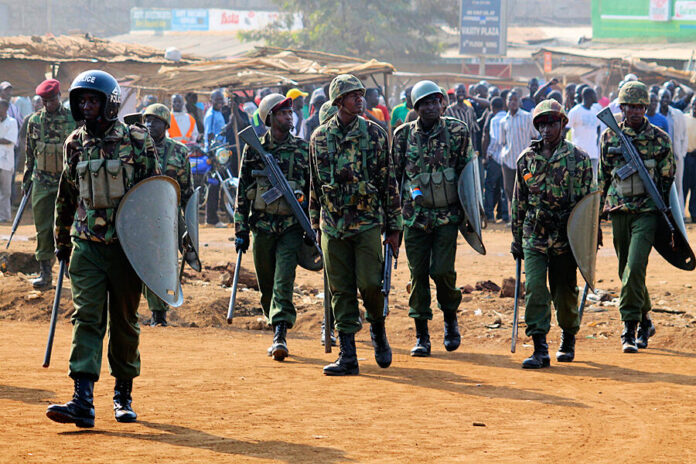
One thing is for sure.
Haiti’s new Transitional Presidential Council (TPC), hatched on Mar. 11 in Kingston, Jamaica by U.S. Secretary of State Anthony Blinken with the assistance of three Washington-centric CARICOM leaders, is hugely unpopular with the Haitian people.
This is because TPC members all had to agree to yet another foreign military occupation of Haiti, the third in 30 years.
This occupation would not even be overseen by the UN Security Council, which supervised the 1994-2000 and 2004-2019 occupations.
Kenyan Police would putatively lead this third invasion called the “Multinational Security Support Mission” (MSS), sanctified by UN Security Council Resolution 2699. Everyone knows, however, that Washington would be calling the shots behind the scenes.
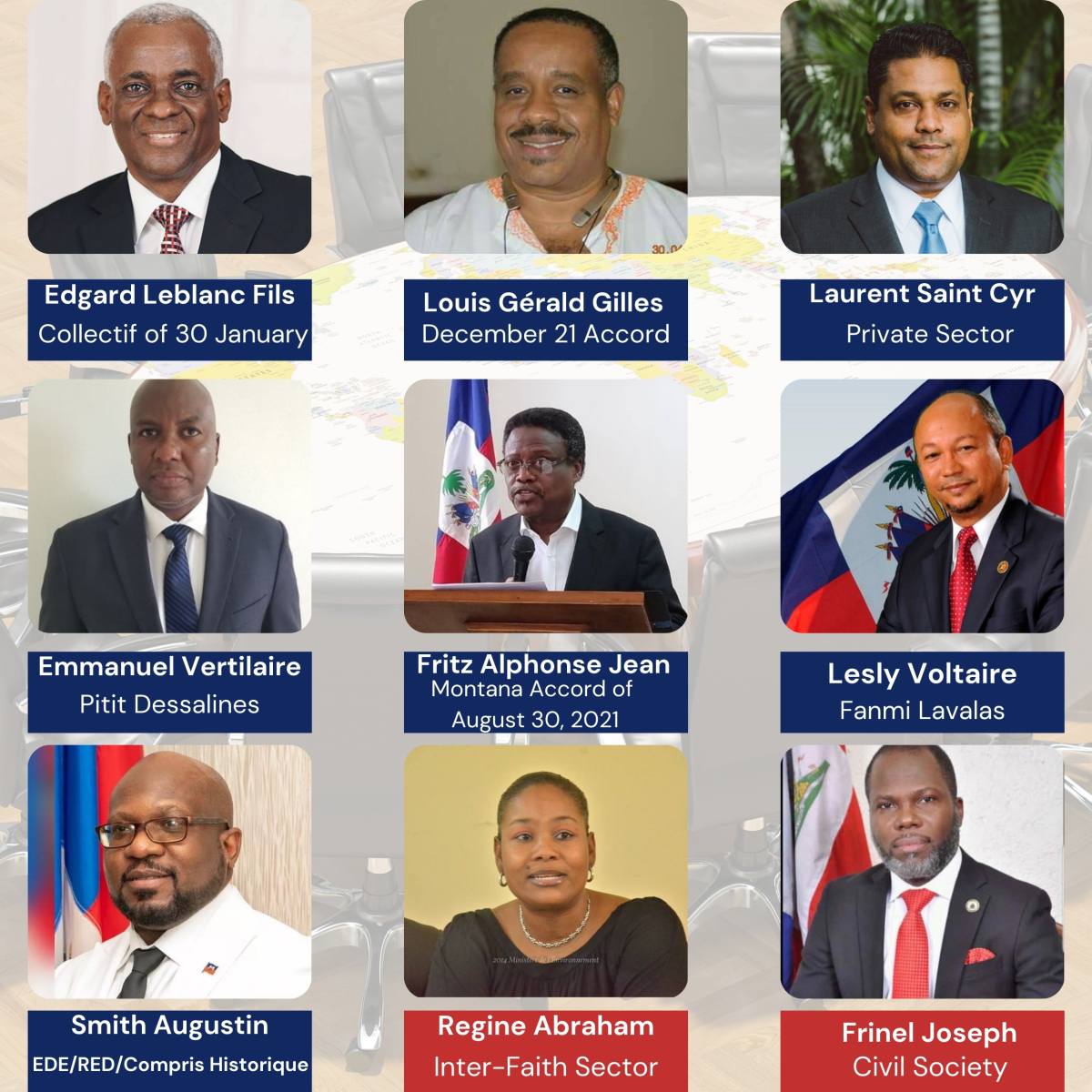
Current de facto Prime Minister Ariel Henry invited the MSS, but he has now been pushed out of power. He has agreed to resign once Washington puts in place seven voting TPC members, but how to do so when the Haitian people reject the MSS they are also peddling?
As a result, former U.S. ambassadors and deep-state “think tanks” are formulating their proposals for how Washington can organize yet another force – either U.S. troops or mercenaries – to guard the TPC so it can be installed and invite the MSS.
Washington’s ultimate goal is to install an elected (in truth, selected) Haitian president who will sign onto the Global Fragility Act (GFA), a 10-year bilateral deal that would base U.S. troops in the neocolony.
Opposition to the TPC and MSS
Many Haitian activists and their anti-imperialist allies reject the TPC and its concomitant MSS.
Harry Comeau, a retired civil servant and member of the Haitian diaspora based in New York and Florida, was critical of the TPC’s formation and composition, stating on X that the “Council of Sages was a U.S.-appointed unelected group of prominent elite Haitians who supported the 2004 coup d’etat. The 2024 Presidential Council is a U.S.-supported nine-member ruling council. The U.S. is the common denominator of this new scheme which will also fail.”
Haitian American Professor Jemima Pierre concurred, describing the TPC on X as “U.S. concocted” and adding that a “political (comprador) bourgeoisie handpicked by the U.S. is not a ‘Haitian-led’ solution.”
Haiti Liberté director Berthony Dupont wrote that the “traditional Haitian political figures… have flocked” to the TPC because they “all have the same class instincts and nurse from the same imperialist teat.”
“After taking part for over two years in fruitless negotiations,” he wrote, “this pack of scoundrels is too happy to take part in imperialism’s charade… The U.S. is now simply turning to other instruments in its arsenal for controlling Haiti.”
Brian Concannon, director of the Institute for Justice and Democracy in Haiti (IJDH) commented that the “proposed MSS may be the most ill-considered mission in the long history of ill-considered armed foreign interventions.” In response to Washington and CARICOM’s condition that TPC members accept the MSS, he said “a government allowed to form only if it accepts a U.S.-imposed occupation force originally designed to prop up a hated, repressive government is not sovereign.”
In a recent statement, the Black Alliance for Peace (BAP) denounced CARICOM for “working in collaboration with Western imperialists to deny the Haitian people their national sovereignty and collective self-determination.” BAP condemned CARICOM for continuing “to betray the people of Haiti – in their support of western intervention, through select states’ choice to send troops to Haiti, and by including western imperialists in ‘negotiations’ to which popular Haitian movements and organizations were not invited.”
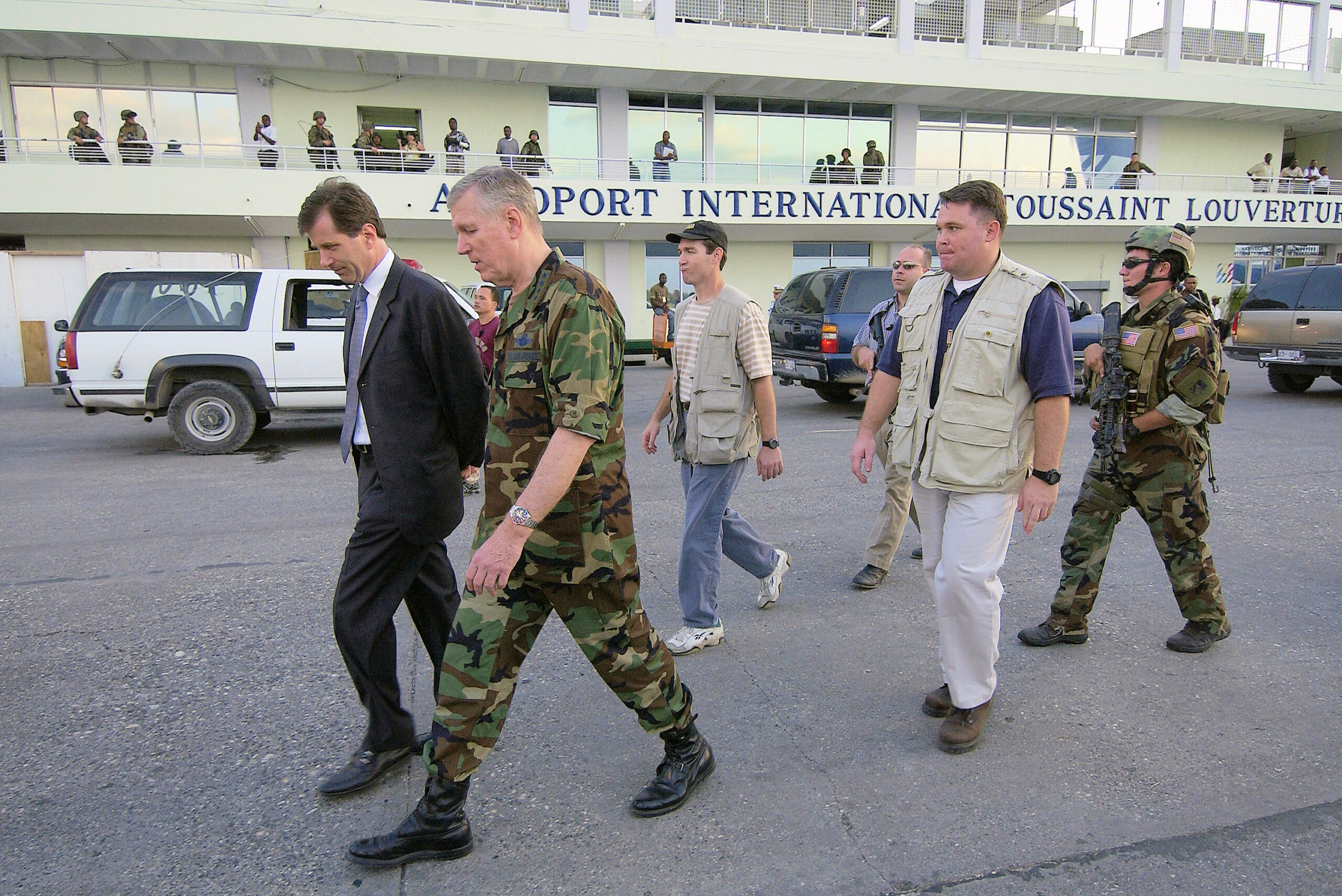
Echoing the sentiments of many Haitians inside Haiti, the political organization MOLEGHAF said in a statement published in Haïti Liberté that a “transition under the dominance of American imperialism” is a pact that will result in “the death of the masses.”
Jimmy Cherizier, spokesperson for the G-9 and Viv Ansamn (Live Together) coalitions, also opposes the MSS, warning that its deployment will result in bloodshed. “I believe that if Kenyans come here, it is to massacre the poor, because that is the order they will receive from the oligarchs and corrupt politicians ,” he said. On Aug. 17, 2023, In a press conference, Cherizier said Haitians would fight “until their last drop of blood” against a foreign invasion..
What is the Status of the TPC Today?
Haiti’s journal of record, Le Moniteur, formally decreed the TPC on Apr. 11. The decree allows Henry to make “necessary arrangements” before the nine-member TPC (there are two observer seats for “civil society” and the “religious sector”) is actually installed. According to a Reuters report, the members must then “participate, in agreement with the prime minister, in the formation of an inclusive ministers’ cabinet.”
The Apr. 11 decree does not name of the seven voting members. That will be done by a second decree.
However, here are the seven voting TPC representatives as they currently known: Fritz Alphonse Jean of the Montana Accord group; Leslie Voltaire of Fanmi Lavalas; Louis Gérald Gilles of the December 21 Agreement political group, allied with Ariel Henry; Laurent Saint-Cyr with the private sector (former member of Henry’s transitional council (HCT) and Haitian Chamber of Commerce president); Edgard Leblanc Fils who represents the January 30th Collective (a coalition of political parties); Emmanuel Vertilaire with the Pitit Desalin party; and Augustin Smith with the EDE/RED political sector.
All these TPC members had to agree with the criteria outlined in a Mar. 11 CARICOM statement which excluded “anyone who is currently on a charge, indictment or has been convicted in any jurisdiction; anyone who is under UN Sanction; anyone who intends to run in the next election in Haiti; [and, most importantly] anyone who opposes the UN Security Council (UNSC) Resolution 2699.”
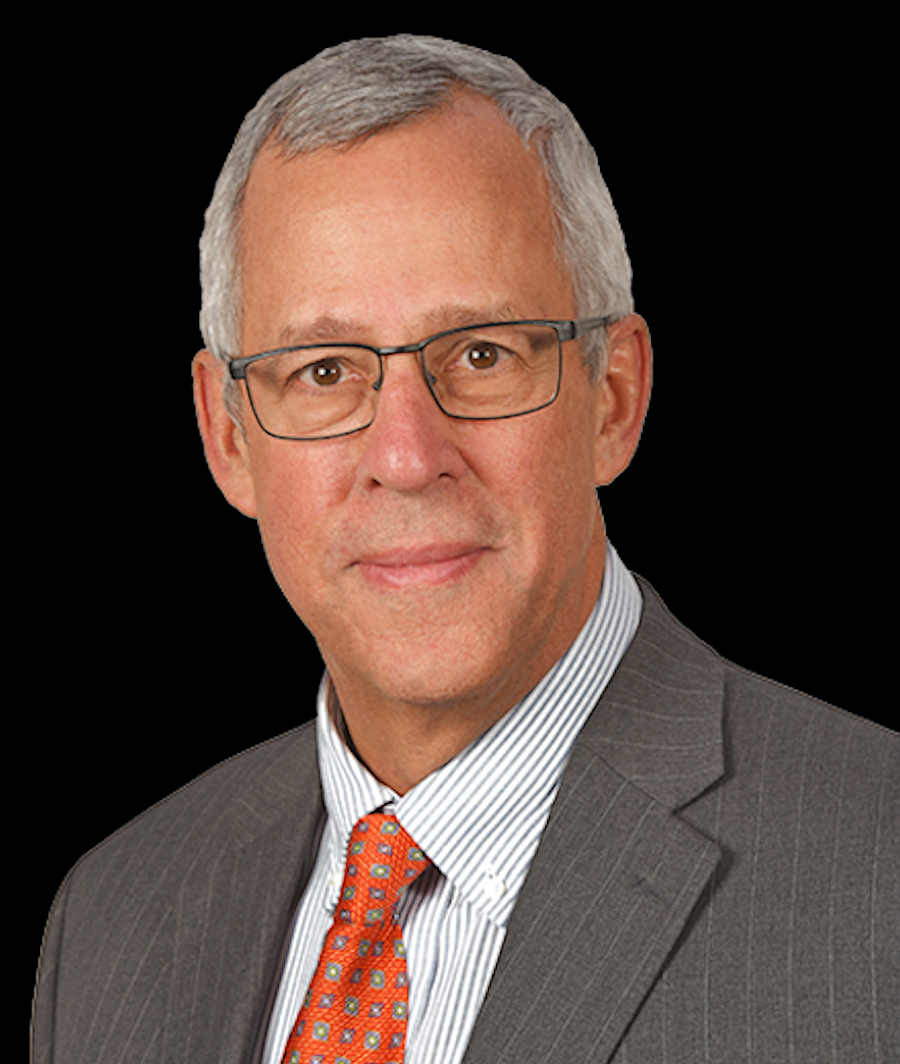
These criteria were set during a “high level” meeting in Kingston between Anthony Blinken, CARICOM representatives, as well as representatives from Brazil, Canada, France, Mexico, and the UN. Haitian representatives were not present.
The Organization of American States (OAS) Permanent Council also recently passed a resolution entitled “Support for a democratic transition in Haiti” to buttress the TPC. This support was predictable as the OAS is a member of the CORE group, a coalition that also includes ambassadors of Brazil, Canada, France, Germany, the European Union, Spain, the U.S., and the UN Secretary-General’s Special Representative.
How to Install the Unpopular TPC
The foremost hurdle the TPC faces is its lack of credibility and popularity. Therefore, there is debate within Washington’s Beltway on how to protect this project so it does not suffer a fate similar to that of Henry.
The first proposal appeared in a racist op-ed against Haitians published in the Washington Post by former U.S. ambassador to Haiti James B. Foley (2003-2005). He described “Haiti’s dysfunction” as a “permanent condition that continues to force itself upon the agenda of American policymakers.” Foley oversaw the U.S., Canadian, and French-led second coup d’etat against democratically elected president Jean-Bertrand Aristide, as well as over a thousand other elected representatives from his Fanmi Lavalas party.
Foley, lamenting that Washington must “once again” try to “piece together a transitional political arrangement” in Haiti, explains that the U.S. must provide “military cover” to install the new TPC into power. Once this military intervention has successfully installed the TPC in power, “the United States could rapidly hand security responsibility over to the international community, anchored by” the MSS, Foley explained.
We can call Foley’s proposal the overt U.S. intervention.
But a more disguised invasion is proposed by the United States Institute for Peace (USIP) in a piece entitled “What a Transitional Government in Haiti will Require to Succeed” by Keith Mines and Nicolás Devia-Valbuena. The duo explain that the TPC’s “establishment would allow for the entry of a multinational security force,” in other words the Kenyan-led MSS. They recognize that this plan is “fraught with challenges,” explaining that the TPC “will only be able to take power if it is escorted by a robust personal security force.”
Mines and Devia-Velbuena don’t consider Haitian National Police (PNH) special forces as a viable option.
They also think that the TPC members can invite the Kenyan force but not rely on it for their own security. The TPC, they write, “would help the force gain legitimacy in Haiti, not be something it would need to physically protect.”
For that, Mines and Devia-Velbuena propose that a “more reasonable arrangement might be for a privatized security force to be contracted to provide protection to the new government, while the MSS continues to restore security more broadly across the country in support of the beleaguered” PNH.
Propping up unelected leaders in Haiti and Venezuela
Mines currently serves as USIP’s Vice President for Latin America. He claims 32 years of diplomatic and military service, including serving as Director of Venezuelan and Andean Affairs at the U.S. State Department from 2017-19.
In this role, Mines led “a 30-person inter-agency team with the mission of restoring democracy to Venezuela.” In other words, he sought to topple the democratically elected government of President Nicolas Maduro, including a crippling sanctions regime followed by an attempt to install Juan Guaido as Venezuela’s interim President.
The devastating effects of the sanctions regime enacted under Mines’ strategy were then blamed on Maduro’s government. The U.S. State Department proposed a pathway to “restore democracy” in Venezuela” by “means of a peaceful, democratic transition” calling for “a broadly acceptable transitional government to administer free and fair presidential elections, and lay out a pathway to lifting Venezuela-related U.S. sanctions.” In other words, the sanctions would only be lifted once Washington’s selected leader was heading the government.
This strategy led to a campaign to get other countries to recognize Guaido as Venezuela’s legitimate leader, resulting in 50 countries supporting the unelected, unpopular politician.
The plan failed. Maduro won the ensuing election, while Guaido was voted out as the opposition coalition’s leader. This prompted Mines to recognize Guaido’s “courage and fortitude” as well as his “legacy of personal and political courage.”
Mines, and USIP generally, shouldn’t be dismissed as simply commentators or researchers. USIP staff like Mines tend to telegraph U.S. foreign policy months in advance, prompting other sectors of the academic-military industrial complex to develop propaganda to sell these policies to other diplomats, nations, and to the public.
What is the United States Institute for Peace?
USIP was founded in 1984, less than one year after the National Endowment for Democracy (NED).
The United States Institute of Peace Act, signed into law by President Ronald Reagan, established USIP as “an independent, nonprofit, national institute to serve the American people and the federal government” through work to promote “international peace and the resolution of conflicts among the nations and peoples of the world without recourse to violence.”
In short, USIP is a U.S. government think-tank whose purpose is to outline the next phase of foreign policy. USIP’s role complements the NED. USIP outlines foreign policy goals and highlights what policies will be necessary to further U.S. interests, while the NED funds groups in foreign countries to create the facade of consent for U.S. foreign policy inside that country.
In 1991 a cofounder of the NED, Allen Weinstein, explained its work by saying, “A lot of what we do today was done covertly 25 years ago by the CIA.” Stephen Kinzer pointed out that the NED “receives nearly all its funds from Congress” and is a “conduit through which the U.S. government has given millions of dollars to political and other protest groups in countries from Albania to Haiti.”
In the case of Haiti, investigative journalist Anthony Fenton confirmed that the NED provided several million dollars for “democracy promotion activities,” which resulted in elite “opposition organizations, such as the Group of 184, the Democratic Convergence” who “agitated most strongly for the overthrow of Aristide” in the lead up to the 2004 coup.
More recent investigations have revealed that the NED continues to fund groups in Haiti which support and further U.S. foreign policy interests.
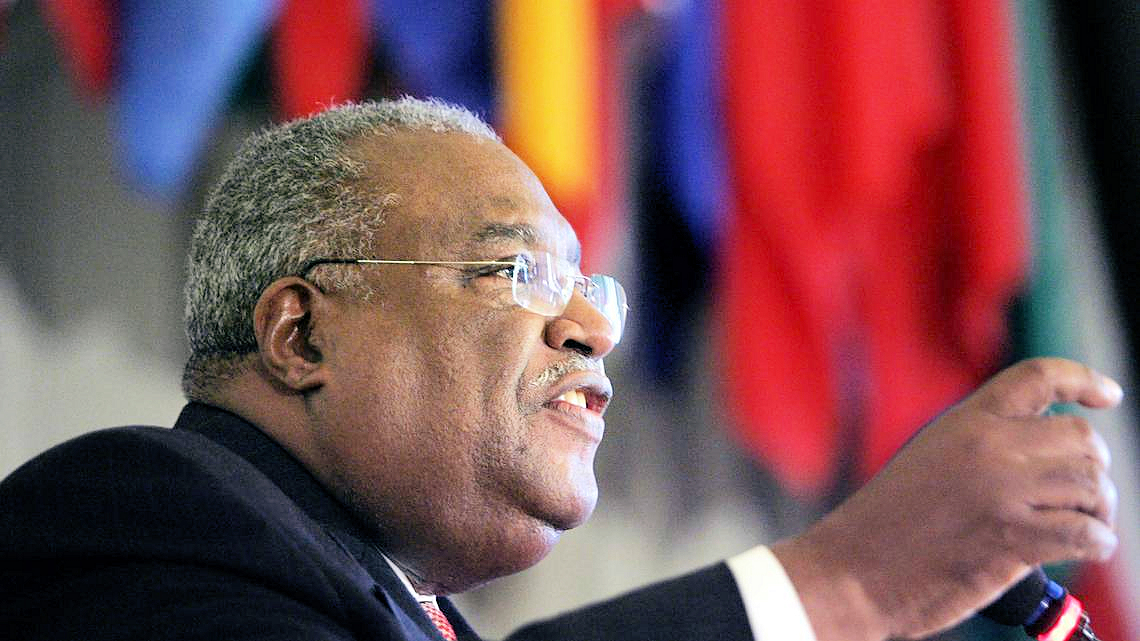
USIP’s role in outlining U.S. foreign policy towards Haiti can be demonstrated in other ways. In October 2023, days after the UNSC approved the MSS mission to Haiti, Keith Mines published an article on USIP’s website entitled “Haiti Needs a Political Dialogue Alongside the Multinational Security Mission.”
Mines explained that many fear that the MSS “will simply be propping up an unelected and unpopular government that will not provide the support needed to build a new police force.”
A new “Council of Sages”
To address these concerns, Mines suggests “an arrangement similar to the Council of Sages, which was used in 2004 after then-President Jean-Bertrand Aristide gave up power” (Aristide was kidnapped by a U.S. SEAL team on Feb. 29, 2004 following a three year U.S.-backed destabilization campaign).
The 2004 Council of Sages was a U.S.-nominated group of seven (it’s always seven!) figures from Haiti’s elite who selected (with Washington’s guidance) a new, interim government following the coup. The Council of Sages included Dr. Ariel Henry and Magali Comeau Denis, chief spokesperson of the Montana Accord, which has a TPC seat. They installed the Boniface/Latortue regime which led a brutal campaign of terror against Fanmi Lavalas members and supporters.
Today Mines argues that, for a Transitional Presidential Council, “there are roughly a dozen key political movements that would need to be present… as well as civil society, the business community, religious actors and the current government.” Mines also argued that the Montana Accord coalition was a key representative element that deserved a seat at the negotiating table.
Mines argued that negotiations ought to be held in Haiti, but outside of Port au Prince, although another Caribbean country was an option.
Acknowledging Washington’s role in dictating terms for these negotiations, Mines states that “only the United States would be in a position to provide the critical inducements to ensure all key parties were willing to abide by the conference’s decisions. But it would need to do so well in the background.” (our emphasis added).
Most of the elements of Mines’ proposed plan came to fruition: A TPC of seven voting members and two observers was negotiated in Jamaica under the aegis of CARICOM, whose representatives worked closely with Washington. The agreement itself contained the signatures of 23 representatives from political parties, including Line Balthazar, the PHTK’s president, as well as representatives from the business elite, civil society, and the religious sector. The U.S. government’s policy goals were achieved as each member accepted the condition that they endorse the MSS’s deployment into Haiti.











[…] council, however, has no popular mandate. It was not elected by the people of Haiti but was created by the United States in collusion with […]